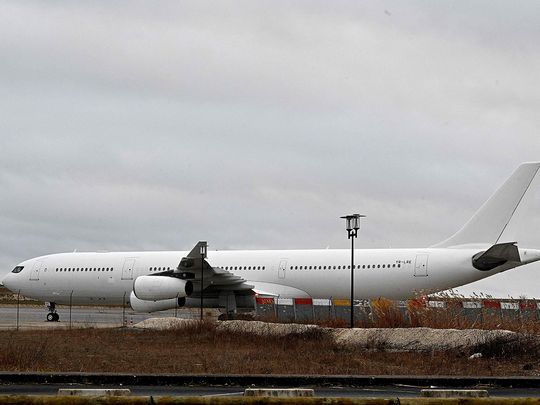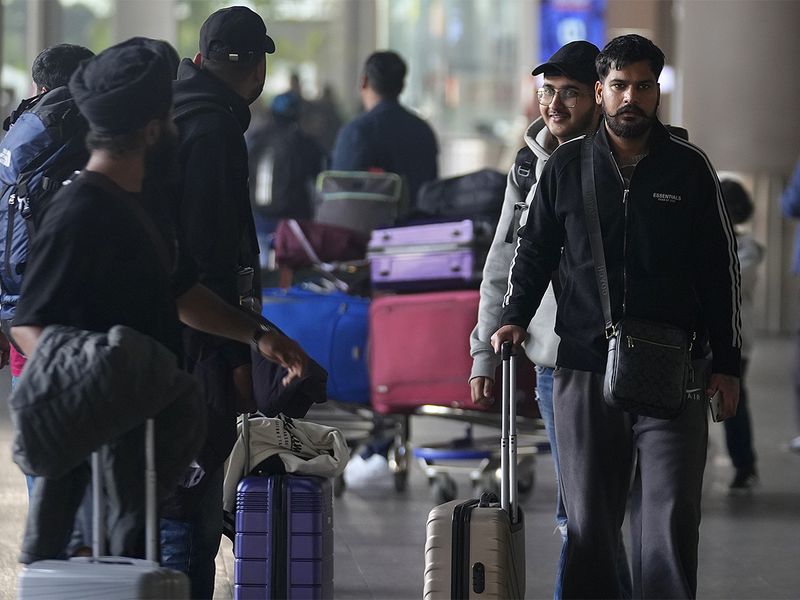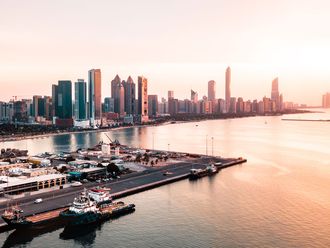
Human trafficking is a global problem that affects millions of people every year. It need not always be the exploitation of human beings for the purposes of forced labour, sexual slavery, or other forms of abuse.
It could also be voluntary and infatuated emigration to “greener pastures.” But those without papers and proper documentation will end up working for less than the market rate and living in extremely vulnerable, if not dangerous conditions.
Yet the allure of North America and Europe remains, even for those with relatively stable economies and decent prospects, such as India. Throughout the more permissive 1990s and 2000s, for instance, many capitals of the Western world were full of young Indian men, mostly from Punjab, selling water bottles, curios, or even flowers inside restaurants.
In United Kingdom, where Indian grocers and corner shops abound, many an aspiring youth could simply disappear through the cracks of the immigrations system, untraced for years.
Till they would be absorbed as refugees or legalised workers in the system. Many also married citizens from their own community, quickly turning legit, before driving cabs, pumping gas, becoming janitors, or doing other menial jobs.
Into the Shadows
But more recently, one of the methods that human traffickers use to transport their victims across borders is called “donkey flights.” Individuals don’t have to go solo; they are transported in droves on chartered planes.
Recently, for instance, a planeload of illegal immigrants from India was stopped on their way to Nicaragua from where they were to be smuggled into the United States through the porous Mexico border.
According to reports, more than 300 Indians were on board such plane that was stopped in France after an anonymous tipoff. The Romanian airliner was searched for suspected human trafficking.
After being stranded at the Chalons-Vatry airport for four days, the authorities sent the illegals back to India. Among them was a baby of just two years.
The malpractice of donkey flights has been a persistent and ongoing concern. Human smugglers have been hiring chartered planes to take illegal immigrants to countries like Nicaragua from where offshore handlers facilitate their entry into the US through the Mexico border.
The traffickers show these flights as planes carrying tourists from India. The passengers on these flights are often lured by immigration agents who promise to help them cross into the US for a hefty fee. Some of them pay as much as Rs60 lakh to Rs80 lakh (about $80,000 to $100,000) to these agents.

Wings of Exploitation
However, these passengers are sometimes unaware or blinded to the risks and dangers involved in such a hazardous passage. Often, they find themselves subjected to abuse, violence, and exploitation by the traffickers and their accomplices. They are also exposed to harsh weather conditions, diseases, and starvation during their transit.
Last year, a few unfortunate Indian hopefuls from Gujarat, abandoned in the marshes, were found frozen to death trying to cross the Canadian border into the United States. After being promised a secure crossing, they were abandoned by their unscrupulous handlers several miles from the border.
Similarly, many others also do not make it to their destination. Between October 2022 and September 2023, a record 96,917 Indians were apprehended while unlawfully crossing into the US according to US Customs and Border Protection (UCBP) data. Some of them were found dead or injured along the way.
Such donkey flights are not only a violation of human rights, but also a threat to national security and public health. They facilitate the entry of criminals, terrorists, and infectious diseases into the US and other countries. They also undermine the legal immigration system and the rule of law. They are a form of human trafficking that should be condemned and prevented by all the states involved.
The international community should work together to combat this menace and protect the victims of human trafficking. The countries of origin, transit, and destination should cooperate to share information, intelligence, and resources to identify, arrest, and prosecute the traffickers and their networks.
All stakeholders must also offer aid and assistance to the survivors and whistle-blowers of human trafficking. But, most importantly, all of us ought to work together to raise awareness and educate the public about the dangers and consequences of illegal immigration and human trafficking.
In India, both government agencies and NGOs, as well as the public must realise that trying to emigrate illegally is simply not worth it. No one should risk their life or dignity over the pipe dream of a better life in a distant country, that too after selling their land and property to raise the enormous sums of money needed for such a risky passage.
Human trafficking is a crime against humanity that cannot be tolerated or ignored. Donkey flights are a manifestation of this crime and must be stopped.
The Indian government has now taken cognisance of this offence and is cracking down on it. No matter how desperate our material conditions, hopefully, we will no longer allow anyone to make “donkeys” of us by luring us into becoming dangerous, live cargo aboard of these infernal expeditions.









